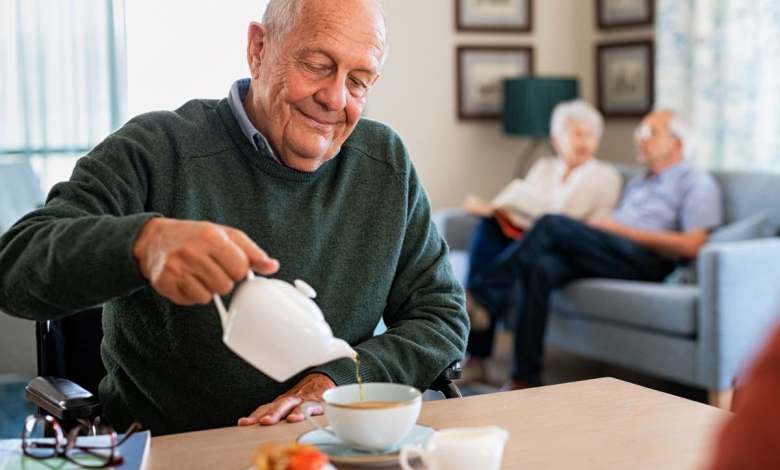Increasing intake of foods rich in calcium and protein such as milk, yoghurt, and cheese, reduces falls and fractures in older adults living in residential care, finds a randomised controlled trial published by The BMJ today.
This is one of only a few studies to examine whether getting these nutrients from foods (as opposed to supplements) are effective and safe, and the researchers say this approach has “widespread implications as a public health measure for fracture prevention.”
Older adults living in residential care often have low calcium and protein intake, which can lead to weak bones and an increase in the risk of falls and fractures. It is estimated that older adults in aged care are the source of about 30% of all hip fractures.
It is well known that foods rich in calcium and protein, such as milk, yoghurt, and cheese help prevent bone fragility, but few studies have investigated whether increasing daily intake of these foods is an effective and safe way to reduce fracture risk in older adults.
So researchers based in Australia, the Netherlands and the US set out to examine whether achieving recommended daily intakes of calcium (1,300 mg) and protein (1 g/kg body weight) from food sources would reduce the risk of fragility fractures and falls among older adults in residential care facilities.
The two-year trial involved 60 aged care facilities in Australia housing 7,195 residents (72% women; average age 86 years) replete in vitamin D but with daily calcium and protein intakes below recommended levels.
Thirty intervention facilities were randomised to provide residents with additional milk, yoghurt, and cheese, achieving intakes of 1,142 mg calcium/day and 1.1 g protein/kg body weight/day. The remaining 30 control facilities continued with their usual menu (700 mg/day calcium and 0.9 g protein/kg body weight/day).
Data from 27 intervention facilities and 29 control facilities were analysed and a total of 324 fractures (135 hip fractures), 4,302 falls, and 1,974 deaths occurred during the study period.
The intervention was associated with risk reductions of 33% for all fractures (121 v 203), 46% for hip fractures (42 v 93), and 11% for falls (1,879 v 2,423). There was no group difference in all cause mortality.
The relative risk reduction for fractures was similar to that found in trials using potent drug therapy to increase bone strength in people with osteoporosis.
A randomised controlled trial is considered the most reliable way to determine whether an intervention actually has the desired effect, but the researchers do point to some limitations. For example, loss of participants limited their ability to examine the possible mechanisms that may contribute to fewer fractures and falls.
Nevertheless, they say, improving calcium and protein intakes by using dairy foods “is a readily accessible intervention that reduces risk of falls and fractures commonly occurring in institutionalised older adults.”
They add: This nutritional intervention “has widespread implications as a public health measure for fracture prevention in the aged care setting and potentially in the wider community.”

 Extra daily milk, yoghurt, and cheese led to a 33% lower risk of all fractures
Extra daily milk, yoghurt, and cheese led to a 33% lower risk of all fractures











.jpeg)

.jpg)


.jpeg)
.jpeg)


.jpeg)
.jpg)





.jpeg)


